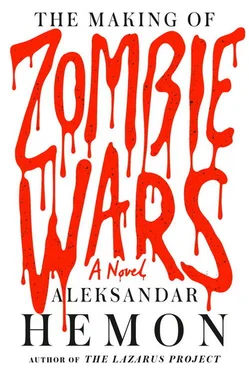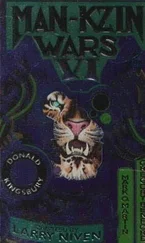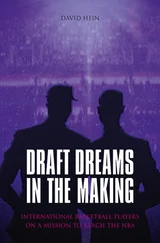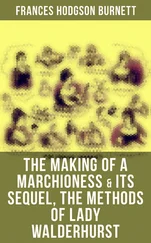Ana grabbed Joshua’s hand and pressed his palm against her cheek, as if to make him touch her blushness , or, maybe, to show she was not afraid of salmonella contamination. It was warm, her cheek, its texture familiar to him by now.
“You make me blush,” she said.
He pulled his hand out of her grasp. The coffee in his mug was still revolving, if slowly, around some imaginary center. There must’ve been the first person who put milk in coffee. Who was the first person to stir it?
“I find you very attractive, Ana, and sweet,” he said, “but this is not the kind of arrangement we could sustain for a long time. It’s kind of wrong.”
“What does it mean: sustain ?”
“Maintain. Keep going. Whatever. I’m no longer your teacher.”
Ana put her own hand on her cheek, as if to remember what Joshua’s touch felt like.
“There is no place where I can go.”
“I know. But we cannot live like this.”
“We have to live. Like this or like something else.”
“Let’s think about something else, then.”
She sat with her legs crossed, Joshua’s shirt barely covering her ass. He could see the soft gossamer shimmering on her thighs; he could perceive the beauty of her body as expressed in that particular detail, as he could perceive her evanescent dimples and the imperfect moles scattered along her neck and the fact that, if her morning-alert nipples were her eyes, she would be slightly cross-eyed. He could perceive that it was those imperfections that somehow made her more authentic, more real within the space he shared with her. From this distance, Kimmy looked like a commercial for a girlfriend, bereft of imperfections — now that he was gone, she was definitely a completed person, every bit of the scaffolding finally removed. Ana applied her lips to the brim of her cup and he watched as the coffee in small sips flowed into her mouth. He wanted to kiss her, but a kiss at that moment would’ve confirmed an unspoken agreement he was unwilling to sign, promising a future. He took a sip of his coffee, its bitterness completely vanquished by milk and sugar. She moved her tongue behind her lips, as though to spread the taste all over her gums, the dimples dancing all over her cheeks. Was there a Bosnian way of drinking coffee, whereby they rub it into their gums like heroin? How would she drink her wine? She’d probably look even more beautiful.
“Why?” he suddenly asked.
“What: why?”
“Why did we do it? Why did you sleep with me?”
Ana drank more coffee and chortled, looking at Joshua.
“I like you,” she said. “I wanted.”
“Come on, Ana. You risked — and lost — everything because you like me ?”
She took another sip of coffee, rubbed it into her gums with her tongue.
“What can I lose that I didn’t lose before?” she said. “I lost my youth in the war. I lost my life. I lost my job because I came to America. I lost my husband.”
“You have your daughter.”
“My daughter,” Ana said. “She is super old for her life. She was three when her real father was killed in the war. She didn’t go out for walk until she was six. She couldn’t play on street, because snipers like to kill children.”
She was mad now, her eyes tearing up.
“Last week she watched on television how somebody killed some dogs with poison gas. It was on television, just like that, and she watched it. She could not sleep. She could not eat.”
“Why?”
“Why? Because dogs didn’t do nothing to nobody. How can you ask why?”
Her anger was beautiful: her eyes gleamed in the morning light, greener than ever, and she licked her lips between thoughts. Her tongue never stopped moving.
“You think I have something now? I find Esko in the war, and I lose him in the war too. Good man, but he comes from the front and hates me because I don’t understand what is happening on the front. He hates me because I am woman. He hates me because I am doctor and I see people die every day in hospital, so I don’t cry over him. He doesn’t know how to play with Alma, how to talk with her. He is not her father. She sees him crazy every day. He screams and breaks things. He can’t wait to go back to the front. He wants to die. Always I have to say: one day, after the war, everything will be good. I tell him, I tell Alma, I tell myself: one day will be good.”
She stopped to pour more coffee in Joshua’s cup, making it darker. She topped off hers too and took a sip.
“You know when I decide to come to America? One day, I was driving. I see truck coming to me. I don’t want to stop. I don’t care. Who cares? If truck cares, he will stop. He stop, in the last moment. It was like I wake up. I was very scared. I decide: I must go from here or I die. I don’t want to die.”
A tear rolled past her lips, and Joshua couldn’t bear to watch it reach her chin. He added sugar and milk and stirred his coffee well beyond what was necessary. The dread of life: that there is always far more to people than what the commercials claim. Nobody really lived all that happiness you could see on television, in magazines, everywhere around you. Who was the first person to declare happiness? They should’ve shot the bastard, right then and there. Or just let him slowly succumb to the evil cells.
“Good day is today. And today they poison dogs who did nothing to nobody. Where is good? Where is me? Me?” Ana implored him. She touched his forearm, and a current went through his body. He’d had no idea that such things could be inside women.
“You ever seen dead person?” Ana asked.
“No,” Joshua said, but it was not true, strictly speaking.
“Like day with no light. Like ball with no air. They just empty.”
Joshua had cracked his head and, when Bernie had taken him to the ER for stitching, he’d seen the bloated purple feet of a corpse on its way to the morgue, where, perhaps, it would’ve been deflated. He, and everybody, always imagined zombies as bloated and heavy with rotten flesh. But what if they were empty, like sacs, like camp inmates, the only remnant of life their insatiable hunger? That would allow for some empathy with them, an urge to save them, rather than just blow them up.
“I am not old. I love life. Maybe too hard, but I love it,” Ana continued her monologue. “I have soul. I have passion. I don’t want to be victim. I am strong.”
“Each thing, as far as it can by its own power, strives to persevere in its being,” Joshua said.
“What is that mean?” Ana said. “I am not thing.”
“That’s Spinoza.”
“What’s Spinoza?”
“Spinoza, the philosopher.”
“I don’t like philosophy,” Ana said. “I don’t like talking about nothing.”
Her body had a smell that made Joshua want to lick her skin like ice cream. He returned to stirring his coffee.
“You are like that truck,” she said. “I don’t care.”
“Okay, but why would you want me? You deserve better than me, better than a fucking truck. I’m not handsome. I have dandruff. And look at this place”—he pointed in the general direction of everything around them—“this is a garage for failure. There is nothing here you’d want to want. If you risk everything, you should risk it for a better man, flattering as it all is to me.”
“I want to take what I want,” Ana said and stroked his cheek. “Every man think he must be best. Man think people love you when you attack. But when you attack you don’t believe that people like you at all. Because you don’t like when other people attack. You lie to make people like you, and when they like you you don’t trust them because you lie.”
“I don’t attack,” Joshua said. “I do lie, though, if not very well.”
Читать дальше












